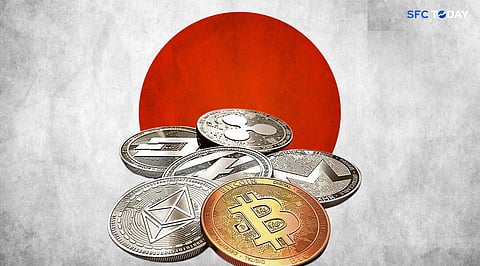

Japan’s money world is changing fast now that regulators treat crypto like regular financial stuff. Instead of just watching from afar, they’re pulling digital coins into the official system - tighter rules come with it. That push aims to make things less risky but still open to cool new ideas. While some big countries can’t agree on what to do, Japan’s stepping up as a go-to place where crypto plays by clear rules.
Japan’s had tough crypto rules for years, thanks to major exchange crashes in the past. This latest move - calling crypto a financial product - is part of that same mindset, yet now it's more about growth than just control. Fresh regulations lay out clear steps for how tokens are traded, held, or shared, so things feel closer to regular stock markets. Instead of tight restrictions alone, there's focus on building an open but steady system.
The FSA wants things clearer, more stable, so investors feel sure. Because of the new category, officials now have better ways to track activity and apply rules. At the same time, it makes risk assessment easier for firms dealing with crypto. Matching older finance practices helps fit digital assets into standard investing systems - instead of treating them like untested gadgets.
Crypto tokens are starting to follow rules once meant only for stocks or financial products. Because of this shift, companies issuing them face new demands, while middlemen must adapt their roles.
Trading platforms should stick to clear disclosure guidelines - much like those selling financial products do. They’d need consistent reporting practices, open pricing models, while facing stricter operation checks from time to time.
Token creators now have extra duties - like preparing papers, spelling out risks, or checking if investments fit rules. That move pushes more responsibility while weeding out shaky ventures.
Stablecoins face tighter rules, so they’ll need to clearly show their assets are backed properly. That helps people trust digital money used for sending cash or buying things.
This change makes the market cleaner. Shady deals can't use official platforms anymore - solid ones get taken more seriously instead. People trading here now operate in a tidier space, shaped by standards banks or brokers already know well.
The new setup changes multiple parts of the market at once - trading platforms change most, shifting into selling financial products. Because of that move, a bunch of underlying shifts kick in.
Exchanges need to tweak their inner workings to fit new rules on tracking, sharing info, or keeping data safe. As the FSA pushes harder on fraud detection tools, transaction checks get tighter. How orders are managed starts showing clearer steps. Together, these changes support serious-level trading setups.
Custodians aren't left out when it comes to feeling changes from the updated setup. Because of the FSA’s rules, safeguarding stored assets now means stricter steps - like keeping funds split up, adding insurance coverage, while making sure risk details are shared openly. That way, money is less likely to be misused, also makes systems harder to breach.
Banks get clearer guidelines now. These updated regulations fit crypto supervision into traditional finance, so adding it feels less tricky. Firms feel surer about testing digital tokens, organized cryptocurrency offerings, or using blockchains for payments. With steady policies in place, big market participants find it simpler to step in.
Japan's clear system differs greatly from places where rules are still scattered or unclear - giving it an edge amid growing use of digital assets.
Global investors usually want markets with clear, steady rules. Right now, Japan fits this need better than places still stuck arguing over how to label things. Other financial watchdogs might copy this approach, pulling cryptocurrencies into mainstream investing sooner.
Tech firms benefit too. Straightforward regulations help roll out blockchain in logistics networks, financial apps, or back-end infrastructures. Japan’s approach boosts its rep for fresh ideas while setting up reliable ground for next-gen web tools.
While some areas with loose rules feel more strain, others are stepping up. With Japan tightening its grip, crypto firms might shift focus to places where rules are clear and trusted. On the flip side, nations cracking down hard could see money moving away - heading to spots that back innovation but still keep users safe.
Japan’s rules are changing fast, opening doors for new money tech. As banks jump into this organized setup, trading assets as tokens might speed up. Thanks to blockchains, settling trades could get easier, while digital stocks gain traction. Moving cash across borders may soon rely more on these updated networks.
The updated setup pushes fintechs and traditional banks to work together more smoothly. Because they use similar rules, things fit faster without hiccups. Trading systems could grow into hubs for many asset types - clearer and tougher over time.
A jump in appetite for approved crypto offerings looks probable. Because of updated regulations, investment funds, custom financial notes, or storage solutions tied to digital coins are seen as more trustworthy now. With big-money players jumping in, markets get deeper, swings calm down, while real-world uses for blockchain tools grow steadily.
Japan's move is a key moment for worldwide crypto rules. Its method mixes safety for users with room for new ideas. Other big finance hubs might follow this path soon.
Japan’s FSA ushers in a fresh phase for digital assets - calling crypto a financial product now. This change brings clearer rules, tougher requirements, yet tighter controls on how markets operate. Institutions see openings, creators get room to move, all while investor protection gets a boost. With these updates, steady market expansion gains support, showing once again that Japan leads in shaping digital money under regulation. While countries worldwide wrestle with controlling tech without killing progress, Tokyo’s approach might just be the blueprint others follow.